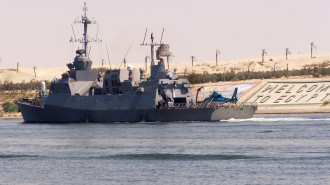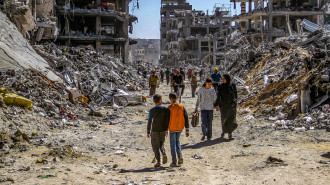Washington’s IS policy hinges on Iran deal
Washington’s IS policy hinges on Iran deal
Until Iran decides whether to take Washington up on a deal over its nuclear programme, the US will go out of its way not to step on any Iranian interests. In other words, to do as little as possible.
4 min read
Obama is accused of lacking enthusiasm in the war against IS [Getty]
More than six months after Washington announced its intention to train and equip "moderate elements in the Syrian opposition", the programme has yet to start. If the US's track record is anything to go by, even when it does get off the ground, it is unlikely to offer much in the way of development.
Since the Syrian rebellion broke out in March 2011, US President Barack Obama has talked a lot, but done little. He drew red lines warning Syrian President Bashar al-Assad against using chemical weapons, but did nothing when the US military said it had happened. That reportedly prompted Anthony Blinken of the US National Security Council, to angrily object that "a superpower does not bluff."
Obama's thinking on Syria, however, has remained consistently anti-interventional, whatever his words. He even opposes indirect military confrontation by arming and training moderate anti-Assad forces, although the US has been engaged in an extremely moderate programme to this effect since 2011, by primarily offering non-lethal aid.
Why? "[He] does not wish to cross Iran on this matter," according to former US diplomat Frederic Hof, who worked on Syria between 2010 and 2013.
The meltdown of the Iraqi military in Mosul when it was overrun by the Islamic State group (IS, formerly Isis) in June, however, forced Washington's hand to some extent. F-18s were quickly scrambled to take out IS targets in Iraq and later Syria. A US plan followed and included Obama's pledge to set up a National Guard for Iraq's Sunni tribes, independent of Baghdad's federal government. Washington also promised to train and equip moderate Syrian rebels.
Roll out, roll back
No sooner had the administration finished "rolling out" its plan to defeat IS, than it started to roll it back, again for fear of "crossing Iran." Even though Tehran has sponsored the creation of non-state Shia militias in Iraq, it opposed the US doing the same for Iraq's beleaguered Sunnis. Washington caved in, and as a result, IS looks a more attractive option for Sunni tribes.
Much of this has to do with the ongoing negotiations between the US and Iran over the latter’s nuclear programme. In December, Obama promised that Iran could become a "regional power" if it accepted to transform its nuclear programme into a "modest" one. Until Tehran makes a decision on Obama's offer, the US president will remain unwilling to take steps in Iraq and Syria that he believes could jeopardise a possible deal.
To keep Tehran happy, Washington also made fighting IS the sole mission of the Syrian force that it said it would help create. But what would Washington do if these same fighters, under US air cover, ever engaged with the Syrian army? Secretary of Defence Chuck Hagel asked this question. The administration repsonse was: Resign.
US officials said they planned to ask for $500 million from Congress to train 5,000 moderate Syrian rebels in Turkey and Saudi Arabia in 2015. However, the real budget – according to the Congressional Continuing Resolution (CR) – is much lower and stands at $225 million, which begs the question: How can such a small force with minimal training and a low budget stand up to the IS, whose budget – if reports are to be believed - is almost ten times bigger?
The answer seems to be that what happened in Iraq will happen in Syria. The "Train and Equip" programme was not designed to create any real Sunni force, because that might anger Shia Iran. Washington's training programmes are primarily stunts designed to ease the pressure from the US's Arab allies and Turkey, who made their participation in an anti-IS campaign dependant on Washington's support for anti-Assad rebels.
No resolve, only questions
In fact, since the programme was announced, Washington has suspended the minimal aid it used to give Syria's rebels because of their defeats to IS and al-Qaeda-affiliated al-Nusra Front. Apparently Washington expects Syria's amateur fighters to take on the better-trained and equipped Islamist groups, but when they fail, they are punished rather than offered more support.
Obama's heart is simply not in the war on IS. Washington was reluctant to even give "Operation Inherent Resolve" its name, fearful that naming the campaign might rekindle unpleasant memories of the wars in Iraq and Afghanistan.
When the US defence department finally named the campaign, it informed US service members that they would not receive any military medals under that name. Instead, US troops who show valour or face injury would be decorated with medals under the Global War on Terror, George Bush's war that Obama once said he had ended.
Obama clearly pins his hopes on a deal with Iran, which he thinks he can subcontract to finish IS. But this policy only raises further questions.
How can a Shia regional power, with Shia militias in Iraq and Syria, possibly defeat a Sunni group entrenched in an area with a predominantly Sunni population? How can Syrian or Iraqi forces with minimum resources, face IS when the US-trained Iraqi army, with its $7 billion annual budget melted away at the first whiff of battle?
Since the Syrian rebellion broke out in March 2011, US President Barack Obama has talked a lot, but done little. He drew red lines warning Syrian President Bashar al-Assad against using chemical weapons, but did nothing when the US military said it had happened. That reportedly prompted Anthony Blinken of the US National Security Council, to angrily object that "a superpower does not bluff."
Obama's thinking on Syria, however, has remained consistently anti-interventional, whatever his words. He even opposes indirect military confrontation by arming and training moderate anti-Assad forces, although the US has been engaged in an extremely moderate programme to this effect since 2011, by primarily offering non-lethal aid.
Why? "[He] does not wish to cross Iran on this matter," according to former US diplomat Frederic Hof, who worked on Syria between 2010 and 2013.
| Summer spring offensive forces US to cooperate with Iran. Read Said Arikat here. |
The meltdown of the Iraqi military in Mosul when it was overrun by the Islamic State group (IS, formerly Isis) in June, however, forced Washington's hand to some extent. F-18s were quickly scrambled to take out IS targets in Iraq and later Syria. A US plan followed and included Obama's pledge to set up a National Guard for Iraq's Sunni tribes, independent of Baghdad's federal government. Washington also promised to train and equip moderate Syrian rebels.
Roll out, roll back
No sooner had the administration finished "rolling out" its plan to defeat IS, than it started to roll it back, again for fear of "crossing Iran." Even though Tehran has sponsored the creation of non-state Shia militias in Iraq, it opposed the US doing the same for Iraq's beleaguered Sunnis. Washington caved in, and as a result, IS looks a more attractive option for Sunni tribes.
Much of this has to do with the ongoing negotiations between the US and Iran over the latter’s nuclear programme. In December, Obama promised that Iran could become a "regional power" if it accepted to transform its nuclear programme into a "modest" one. Until Tehran makes a decision on Obama's offer, the US president will remain unwilling to take steps in Iraq and Syria that he believes could jeopardise a possible deal.
| Obama's heart is simply not in the war on IS. Washington was reluctant to even give 'Operation Inherent Resolve' its name. |
US officials said they planned to ask for $500 million from Congress to train 5,000 moderate Syrian rebels in Turkey and Saudi Arabia in 2015. However, the real budget – according to the Congressional Continuing Resolution (CR) – is much lower and stands at $225 million, which begs the question: How can such a small force with minimal training and a low budget stand up to the IS, whose budget – if reports are to be believed - is almost ten times bigger?
The answer seems to be that what happened in Iraq will happen in Syria. The "Train and Equip" programme was not designed to create any real Sunni force, because that might anger Shia Iran. Washington's training programmes are primarily stunts designed to ease the pressure from the US's Arab allies and Turkey, who made their participation in an anti-IS campaign dependant on Washington's support for anti-Assad rebels.
No resolve, only questions
In fact, since the programme was announced, Washington has suspended the minimal aid it used to give Syria's rebels because of their defeats to IS and al-Qaeda-affiliated al-Nusra Front. Apparently Washington expects Syria's amateur fighters to take on the better-trained and equipped Islamist groups, but when they fail, they are punished rather than offered more support.
Obama's heart is simply not in the war on IS. Washington was reluctant to even give "Operation Inherent Resolve" its name, fearful that naming the campaign might rekindle unpleasant memories of the wars in Iraq and Afghanistan.
When the US defence department finally named the campaign, it informed US service members that they would not receive any military medals under that name. Instead, US troops who show valour or face injury would be decorated with medals under the Global War on Terror, George Bush's war that Obama once said he had ended.
Obama clearly pins his hopes on a deal with Iran, which he thinks he can subcontract to finish IS. But this policy only raises further questions.
How can a Shia regional power, with Shia militias in Iraq and Syria, possibly defeat a Sunni group entrenched in an area with a predominantly Sunni population? How can Syrian or Iraqi forces with minimum resources, face IS when the US-trained Iraqi army, with its $7 billion annual budget melted away at the first whiff of battle?

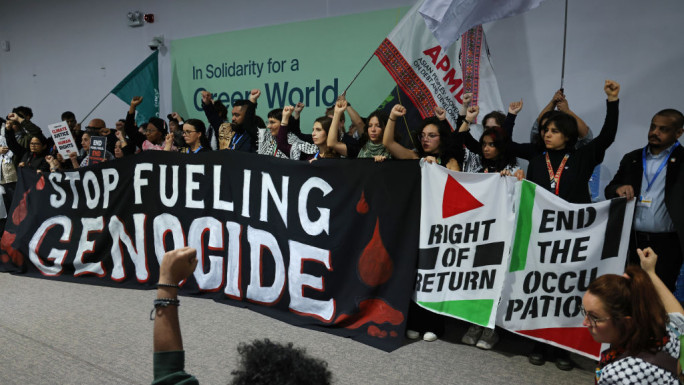
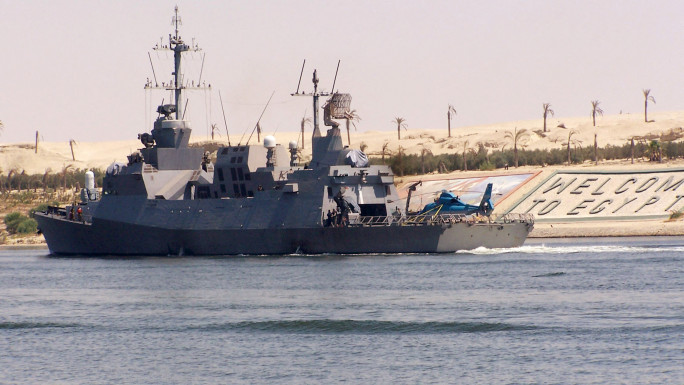
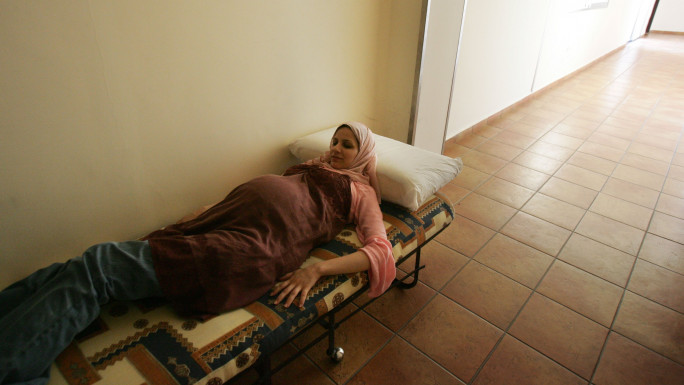
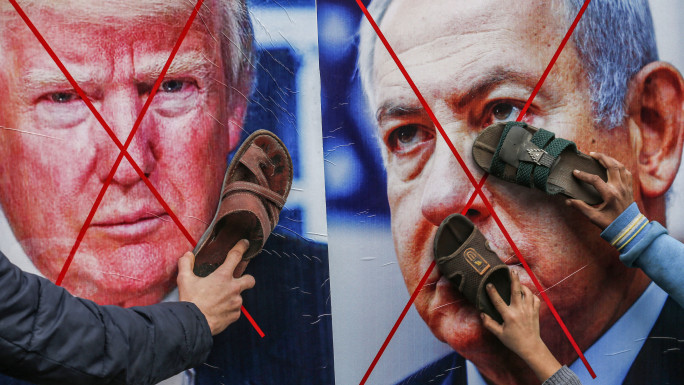
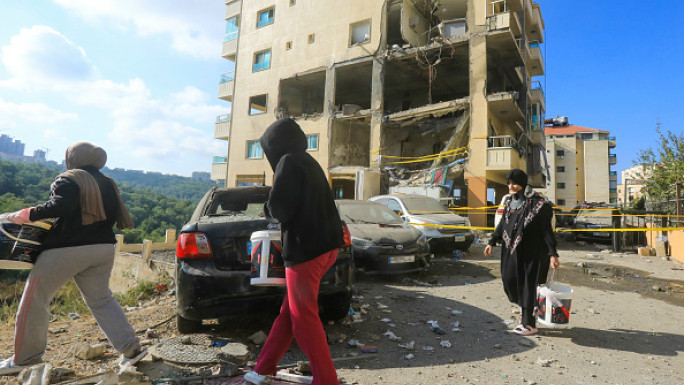
 Follow the Middle East's top stories in English at The New Arab on Google News
Follow the Middle East's top stories in English at The New Arab on Google News

